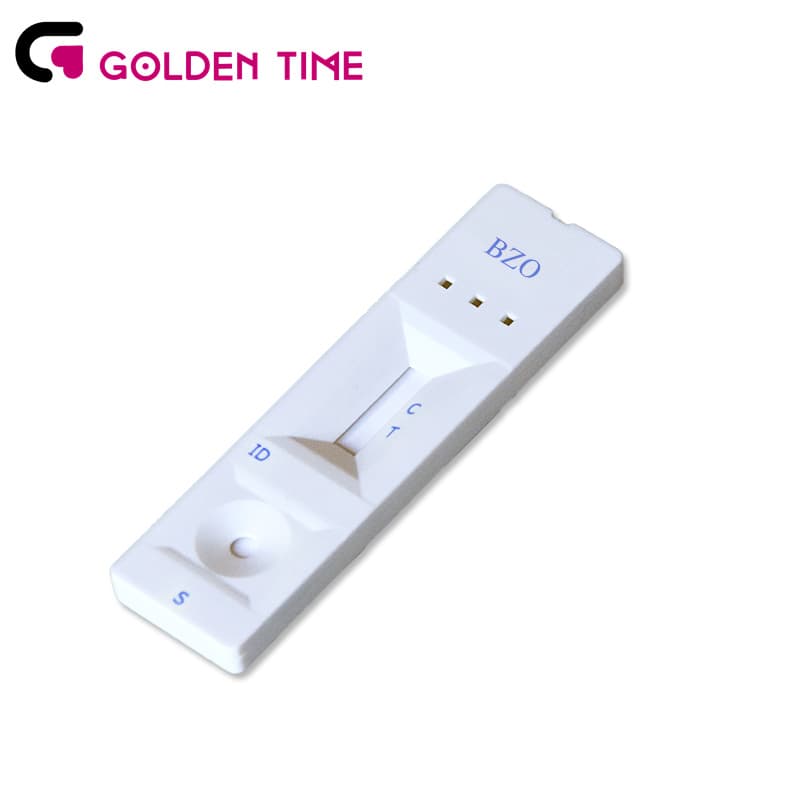Feb . 01, 2025 01:41 Back to list
cassette hcg pregnancy test
Cassette hCG pregnancy tests have revolutionized the way individuals approach early pregnancy detection. These compact, easy-to-use devices provide an affordable and accessible method for home testing, offering a high level of accuracy and convenience. In this comprehensive guide, we delve into the many facets of cassette hCG pregnancy tests, drawing on authoritative sources and expert insights to offer readers a deep understanding of their functionality, reliability, and usage.
In terms of product evolution, manufacturers continue to innovate, focusing on user-friendly designs and packaging that preserve the integrity of the test components. Many of these innovations are inspired by feedback from both consumers and healthcare professionals, ensuring that each new iteration addresses the needs of the users while adhering to strict regulatory standards. One of the most significant advantages of cassette hCG pregnancy tests is their availability, both over-the-counter and online, making them a readily accessible option for individuals across various economic backgrounds. Their affordability, combined with high accuracy and ease of use, positions them as an attractive choice for those seeking confidential and immediate answers about their pregnancy status. Testimonials from users worldwide underline the importance of these tests in personal healthcare management. Many recount experiences where the availability of an accurate home testing option has empowered them to take timely decisions regarding their health and wellbeing, a testament to the empowering nature of these modern medical devices. Lastly, the impact of cassette hCG pregnancy tests extends beyond individual users to public health, where they play a role in shaping conversations around fertility, family planning, and reproductive health education. By fostering a greater understanding and awareness of pregnancy, these tests contribute to broader societal benefits, enhancing community health intelligence. In conclusion, cassette hCG pregnancy tests represent a significant advancement in personal healthcare technology. Their combination of accuracy, reliability, and ease-of-use, supported by expert endorsements and robust research, make them an invaluable tool for those seeking quick and dependable answers in their pregnancy journey. As technology continues to evolve, these tests are poised to remain at the forefront of early pregnancy detection, continually adapting to meet the needs of users worldwide.


In terms of product evolution, manufacturers continue to innovate, focusing on user-friendly designs and packaging that preserve the integrity of the test components. Many of these innovations are inspired by feedback from both consumers and healthcare professionals, ensuring that each new iteration addresses the needs of the users while adhering to strict regulatory standards. One of the most significant advantages of cassette hCG pregnancy tests is their availability, both over-the-counter and online, making them a readily accessible option for individuals across various economic backgrounds. Their affordability, combined with high accuracy and ease of use, positions them as an attractive choice for those seeking confidential and immediate answers about their pregnancy status. Testimonials from users worldwide underline the importance of these tests in personal healthcare management. Many recount experiences where the availability of an accurate home testing option has empowered them to take timely decisions regarding their health and wellbeing, a testament to the empowering nature of these modern medical devices. Lastly, the impact of cassette hCG pregnancy tests extends beyond individual users to public health, where they play a role in shaping conversations around fertility, family planning, and reproductive health education. By fostering a greater understanding and awareness of pregnancy, these tests contribute to broader societal benefits, enhancing community health intelligence. In conclusion, cassette hCG pregnancy tests represent a significant advancement in personal healthcare technology. Their combination of accuracy, reliability, and ease-of-use, supported by expert endorsements and robust research, make them an invaluable tool for those seeking quick and dependable answers in their pregnancy journey. As technology continues to evolve, these tests are poised to remain at the forefront of early pregnancy detection, continually adapting to meet the needs of users worldwide.
Next:
Latest news
-
Highly Accurate hCG Pregnancy Test Strips - 5 Min Results
NewsAug.02,2025
-
Premium Empty ABS Plastic Cassettes: Durable & Lightweight Storage
NewsAug.01,2025
-
Accurate Cocaine (Coc) Rapid Test Kit | Fast & Reliable Detection
NewsJul.31,2025
-
Accurate HCG Pregnancy Test Strips | Fast Home Use Kit
NewsJul.31,2025
-
Reliable Early Pregnancy Test Kit Supplier - Multi Plastic Cassette Options
NewsJul.30,2025
-
Transferrin Rapid Test Cassette – Reliable Tumor Marker Detection
NewsJul.29,2025

